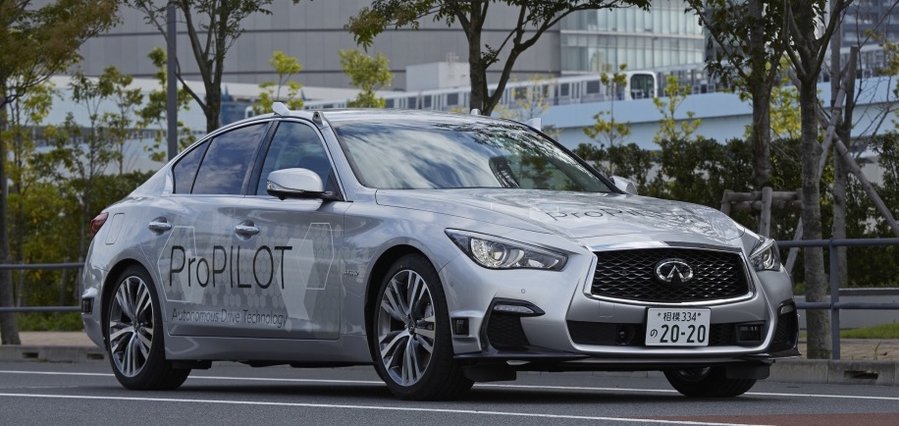Nissan tests fully autonomous ProPilot tech on Tokyo roads

ProPilot Assist is coming to the U.S. in the Rogue, as well as the Leaf EV. For this generation, the system allows for Level 2 autonomous driving, which is essentially adaptive cruise control paired with a lane-keeping function. Later, Nissan will add ProPilot Park, which allows the car to park itself. The next generation of ProPilot, though, allows for Level 4 fully autonomous driving, even on urban streets, beginning in 2020. Nissan has announced that it has already tested it on public roads during a demonstration in Tokyo.
The prototype test vehicle is an Infiniti Q50. It's fitted with 12 cameras, 12 sonar sensors, nine millimeter-wave radar sensors, six laser scanners and high-definition mapping, all run through artificial intelligence. With this combination of hardware and software, the Q50 prototype can navigate across town or on the highway, automating the entire driving duties from the moment the passenger selects a destination until their arrival. It can tackle busy intersections and respond to obstacles in the road, providing what Nissan claims is a "human-like driving feel that gives passengers peace of mind."
"Our next-generation ProPilot prototype showcases technology that will be available for real-world use from 2020," said Takao Asami, Nissan's senior VP of research and advanced engineering. "Today's demonstration is another example of our successful work toward creating an autonomous driving future for all."
Autoblog has already had the chance to sample the current generation of ProPilot Assist, in both the Leaf and the Rogue. While there has been a little bit of disagreement in our office, most of us have found the technology to work fairly well, and are looking forward to trying the next generation of semi-autonomous and autonomous systems. As the tech advances, it will only get smoother and smarter.
Nouvelles connexes


